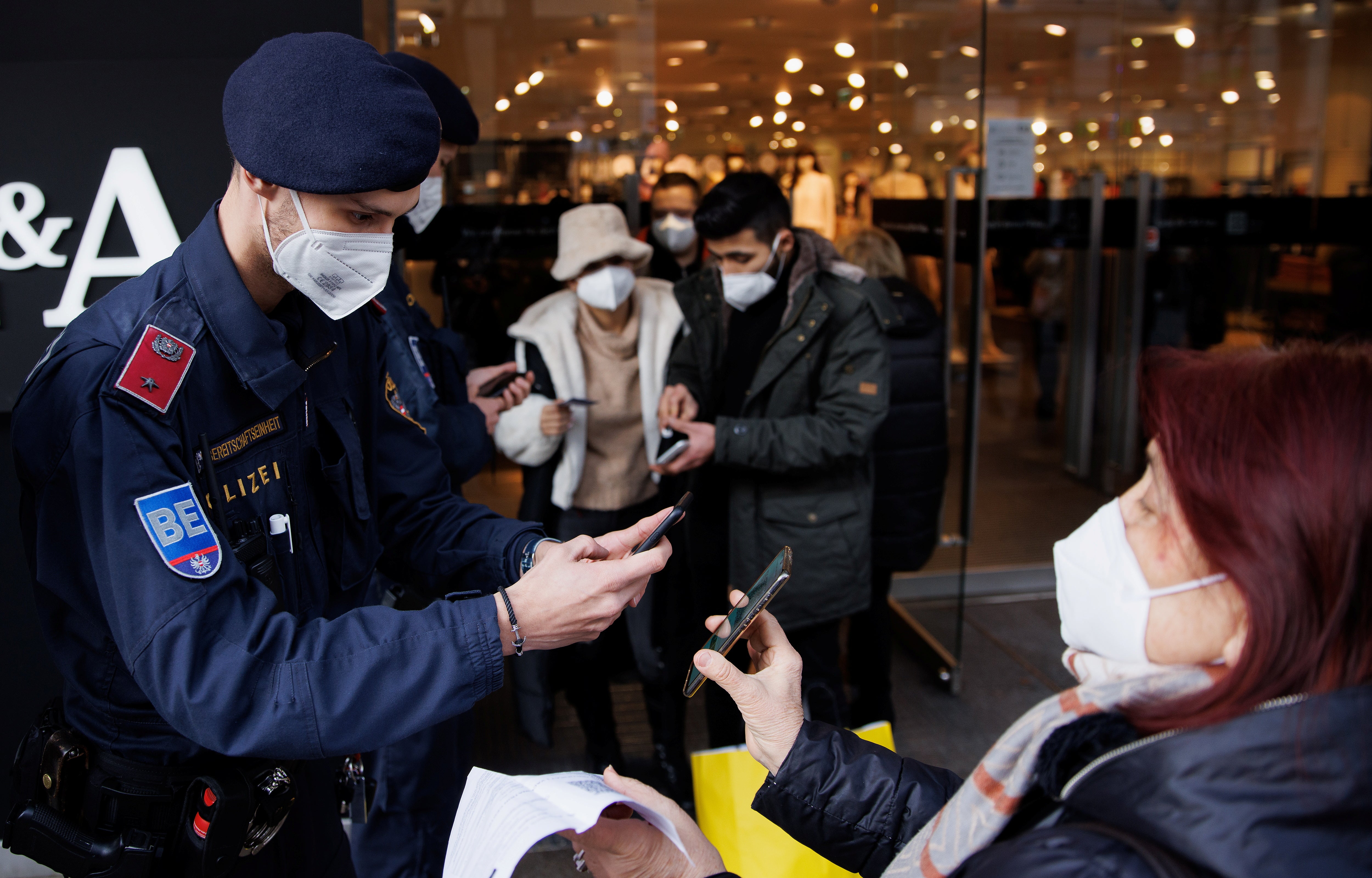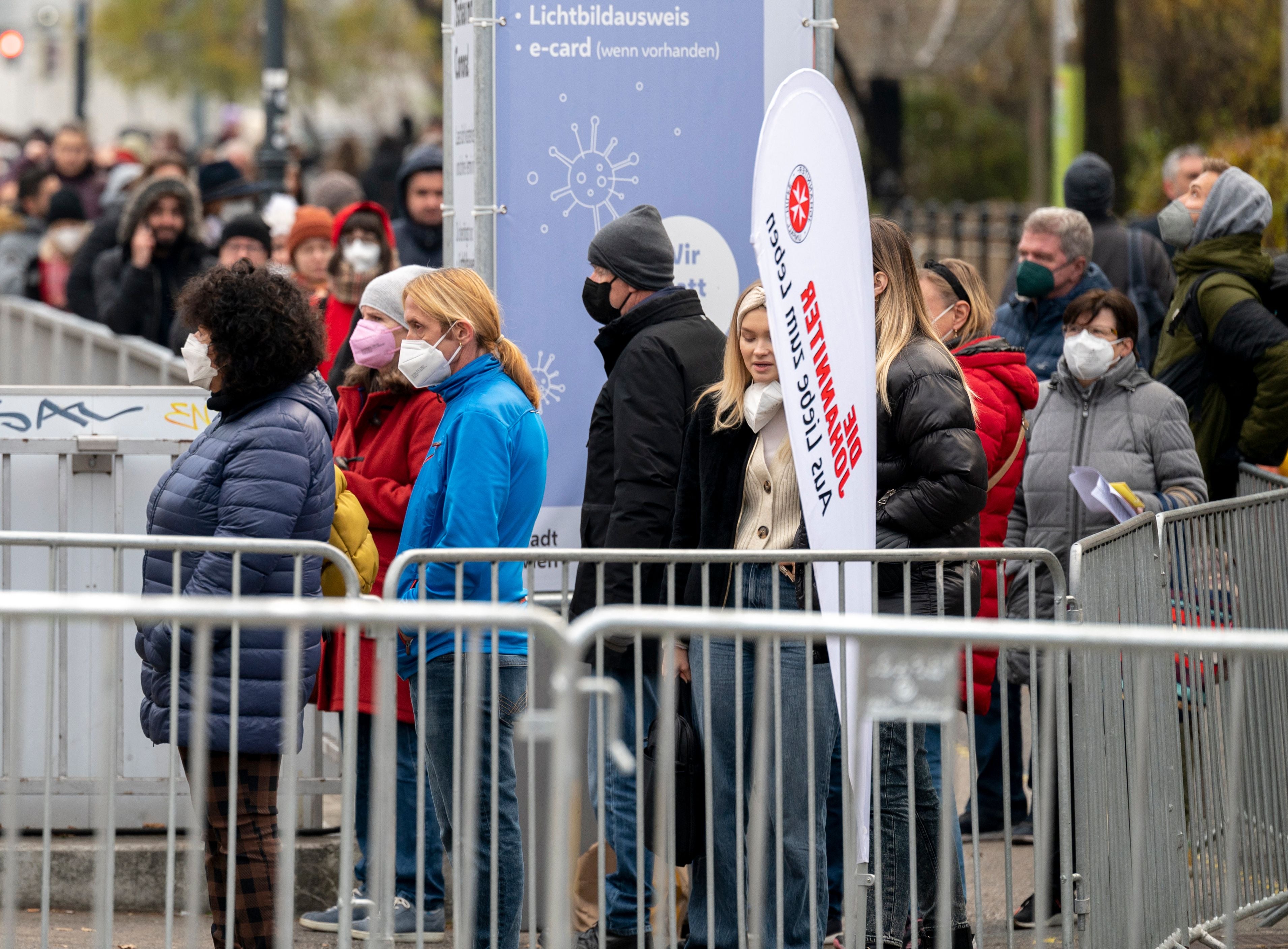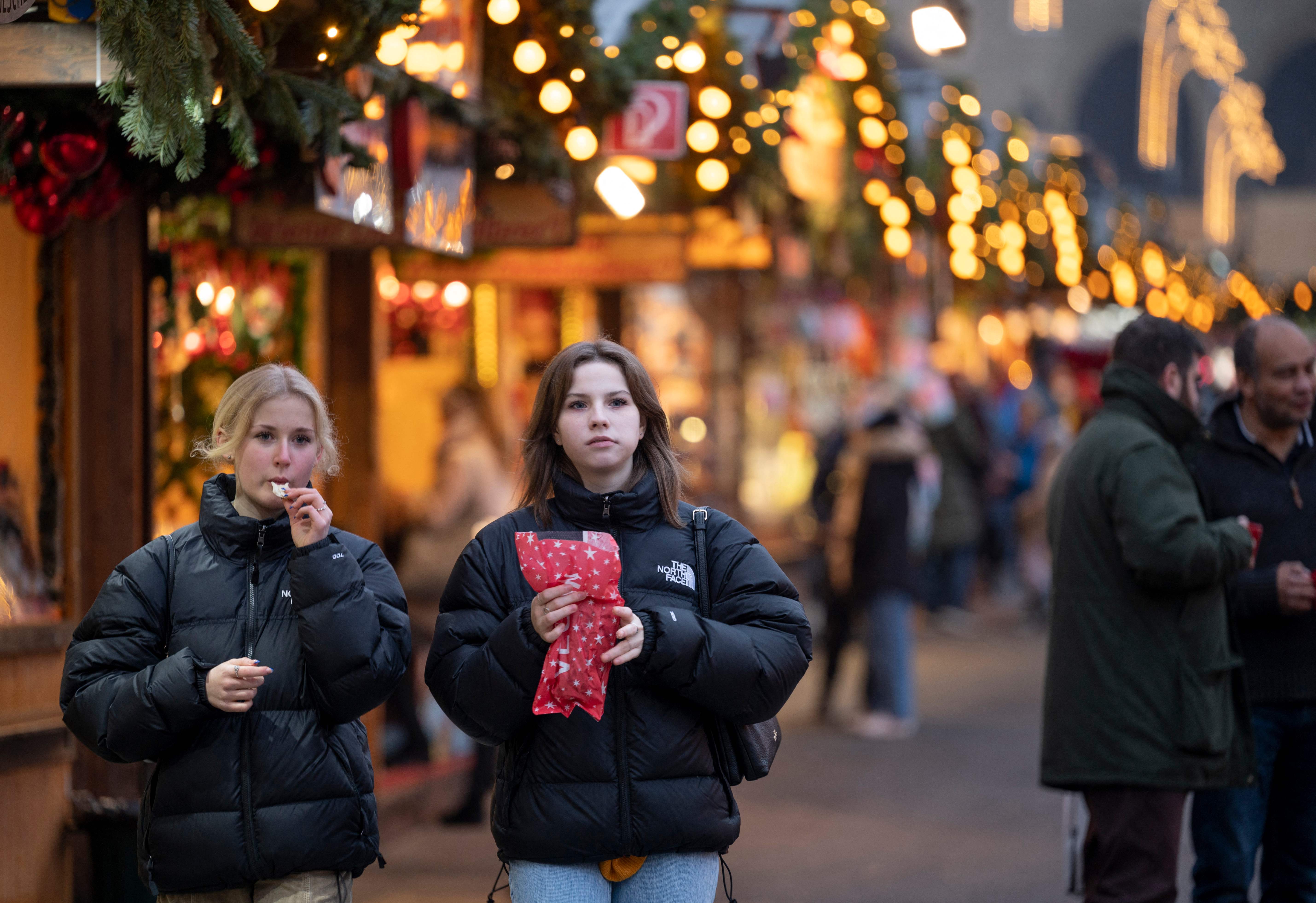Austria’s lockdown for the unvaccinated spurs jab surge yet frustration simmers
Enforcement of new restrictions appears patchy and many unvaccinated Austrians are standing firm, reports Stephanie Liechtenstein

Your support helps us to tell the story
From reproductive rights to climate change to Big Tech, The Independent is on the ground when the story is developing. Whether it's investigating the financials of Elon Musk's pro-Trump PAC or producing our latest documentary, 'The A Word', which shines a light on the American women fighting for reproductive rights, we know how important it is to parse out the facts from the messaging.
At such a critical moment in US history, we need reporters on the ground. Your donation allows us to keep sending journalists to speak to both sides of the story.
The Independent is trusted by Americans across the entire political spectrum. And unlike many other quality news outlets, we choose not to lock Americans out of our reporting and analysis with paywalls. We believe quality journalism should be available to everyone, paid for by those who can afford it.
Your support makes all the difference.Austria’s lockdown for the unvaccinated may have spurred a rush on vaccination centres but a vocal minority of Austrians are unlikely to get jabbed amid doubts about the effectiveness of the new restrictions and how they will be enforced.
Europe is once again the epicentre of the Covid-19 pandemic, and Austria has one of the continent’s highest infection rates. Over the past week, the country has recorded around 925 new cases per 100,000 people - a national record high.
In a bid to stem the surge in cases and boost its low vaccination rate, roughly 65 per cent of Austrians have been double jabbed, Vienna on Monday placed about two million of its nine million population into lockdown - a move without precedent in the pandemic.
The restrictions only allow the unvaccinated to leave home in limited circumstances such as going to work with a negative test result, exercising outside or buying food. With just over a month left before Christmas, they are not allowed to shop for non-essential items or go to restaurants, bars, cinemas, concerts or museums.
“The only way to break free from this vicious cycle of the pandemic is to increase the vaccination rate,” Austrian Chancellor Alexander Schallenberg said in an interview with Austrian national public TV on Monday. “We are not taking this step lightly, but unfortunately it is necessary.”
Police have been tasked with ensuring compliance with the partial lockdown, and can issue fines between €500 (£423) and €1,450 (£3,042).
But several observers - including officials in Mr Schallenberg’s ruling conservative party - have warned that the measure will be hard to enforce.
Walking around the centre of Vienna since the lockdown was implemented - which appeared as busy as ever in the build-up to Christmas - The Independent visited at least eight stores where proof of vaccination was not required.
However, queues of people were having their documents checked outside the city’s largest Christmas market, while multiple bars and restaurants - including the iconic Restaurant Leupold - said they were only welcoming fully vaccinated customers.
While hundreds of people protested against the restrictions over the weekend in Vienna and Salzburg, Sunday also saw countless citizens rush to vaccination centres in the capital just hours before the lockdown was implemented.

At one such walk-in site - located in St. Stephen’s Cathedral and affectionately known as ‘Steffl’ by locals - there was a long queue of people waiting for a jab despite the cold.
“We have seen a significant increase of people wanting to get their COVID-19 jab,” said Lena, a volunteer for the Order of Malta, which is helping to run the vaccination drive. She asked to go only by her first name due to the nature of her work.
In the week before the new restrictions came into force, almost 130,000 people were vaccinated for the first time, the highest weekly number recorded since early July.
Barbara, a woman in her late fifties, told The Independent in the queue outside the cathedral that she had decided to get her first vaccine before the lockdown started.
“I am scared of the new restrictions and of the fact that I will not be able to go about my normal life anymore,” she said on Sunday afternoon.

Yet some experts have questioned whether the lockdown for the unvaccinated will slow Austria’s dramatic rise in infections, which has piled pressure on the country’s intensive care units and led some hospitals to postpone planned surgeries.
“We will need additional measures,” said Dorothee von Laer, Professor for Virology at the University of Innsbruck. “We need a better campaign to convince people to get their third jab, we need masks indoors, and we will also have to close down restaurants and bars in the evening.”
The partial lockdown is an “experiment with an unclear outcome”, she added.
The government is set to discuss other possible restrictions on Wednesday, such as a night-time curfew that would also apply to those who have been fully vaccinated.
Any such move would likely spur more criticism and embolden Austria’s anti-lockdown protestors. The far-right Freedom Party said it will seek legal action against the lockdown measures and has planned a rally in Vienna on Saturday.
One vaccine sceptic, Larissa - a woman in her sixties - told The Independent she thought the lockdown for the unvaccinated was “discriminatory”.
“They say that the vaccine is voluntary but this is not true because we are excluded from participating in normal life,” she said.
Another vaccine holdout, Vesna - who is in her mid-fifties - said she would not get the jab in any circumstances.
“I think it is discriminatory and humiliating that I am not able to go out to the restaurant anymore with my children who are vaccinated,” she said.



Join our commenting forum
Join thought-provoking conversations, follow other Independent readers and see their replies
Comments